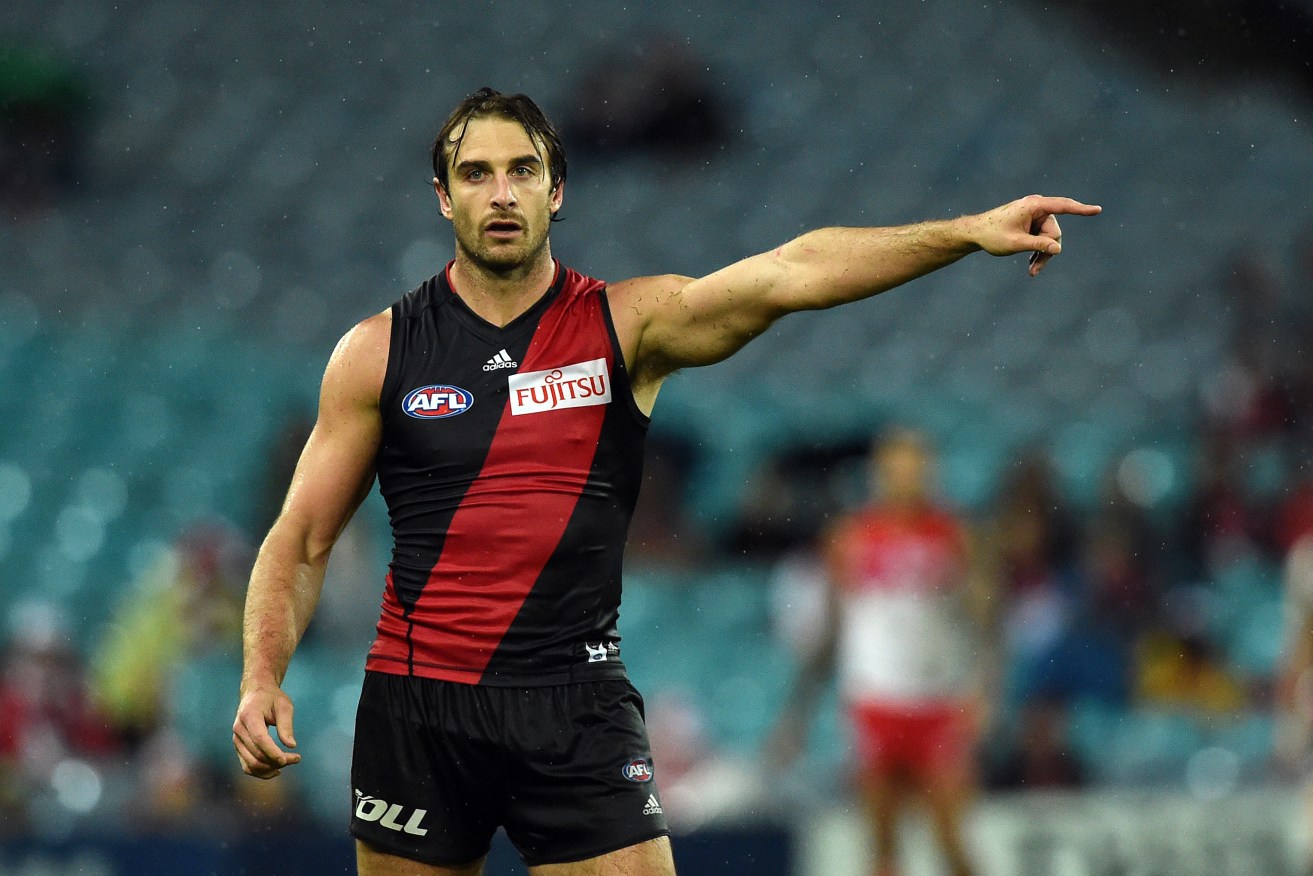WADA: ‘It’s not about sympathy, it’s about following the laws’
The head of WADA says the 34 current and past Essendon players who received 12-month doping bans were responsible for what went into their bodies.

Bombers captain Jobe Watson may lose his Brownlow medal. Photo: Mick Tsikas, AAP.
The Court of Arbitration for Sport upheld WADA’s appeal yesterday and imposed the sanction, meaning 17 current AFL players will not be allowed to play this season.
WADA director general David Howman said the players’ lack of curiosity about the Bombers’ controversial supplements regime was one aspect contributing to their suspensions.
“They’ve been educated so they are responsible for what went into their bodies,” Howman told 3AW today.
“The players were not consistent in what they told various people and the way the evidence was actually presented to the Court of Arbitration.
“The matters relating to each player came out in a different fashion including one who didn’t even concede to his doctor, when treated for a special illness, that he had been taking these things… that could have led to real detrimental aspects to him health-wise.”
Howman said WADA launched the appeal to CAS to ensure the standard of proof required in anti-doping cases was equal worldwide.
“It’s not a question extending sympathy [to the players] when you have to administer laws, it’s a question of following the process and following the laws properly,” Howman said.
“If you stop doing that then you open up avenues of appeal for all sorts of people in all sorts of sports around the world.”
AFLPA boss Paul Marsh has called for the AFL to consider severing ties with WADA in the wake of CAS’ decision, but Howman dismissed the criticism.
“We cater for all team sports throughout the world,” Howman said.
“It’s not as though the AFL is alone in this.”
But AFL boss Gillon McLachlan has spoken of his personal sympathy for the banned players, saying he did not blame them for the saga that led to their anti-doping suspensions.
McLachlan has a much kinder opinion of the 34 current and former players than Howman and ASADA chief executive Ben McDevitt.
While McDevitt also said he felt for the players, he added they only had themselves to blame.
However, McLachlan said the strong group culture at football clubs meant players were not encouraged to ask too many questions.
His comments will raise eyebrows in some quarters, given the strong belief of people such as McDevitt is that the players did not do enough to query the 2012 supplements regime at Essendon.
“I don’t blame the players, because if you’ve been around football clubs and played football, you know how culture works,” McLachlan told Fox Footy’s AFL360 program.
“They’ve asked questions up front, they’ve signed a consent form.
“If you’re going to be a good player at an AFL club, you don’t ask too many questions.
“The culture is strong, you trust the people in place, and you do what you’re told.
“You do everything you need to do that you think is legal to succeed.
“So there’s a distinction between what CAS said with respect to no significant fault as it applies to the code and then there’s how we perceive the responsibility of the players in day-to-day.”
But McLachlan also said the bans showed that players had to be diligent with their anti-doping responsibilities.
“The lesson for the players is that on this issue, you can’t be too careful,” he said.
“The process has to be adhered (to) strictly and completely every time.
“It’s a very tough lesson to learn.”
In an extended interview, McLachlan strongly defended the AFL’s conduct during the joint investigation with ASADA during 2013. That led to a range of AFL penalties, including coach James Hird being suspended for a year and Essendon kicked out of the 2013 finals.
“What I feel very comfortable on is that every bit of information we got was actioned … the right way to protect the integrity of our game and the health and welfare of the players,” he said.
“Our handling … has been tested by a lot of people, stress tested from a thousand different angles by strong-willed people.
“I feel confident as we look back that we took strong action.”
McLachlan said the AFL’s priorities now were offering help to the banned players and to Essendon.
“The welfare of the players and then the re-birth of Essendon are our priorities now,” he said.
“That’s going to be in various forms, whether it’s emotional, whether it’s a whole series of things to support players.
“Clearly Essendon are going to be weakened, how much we don’t know.”
-with Roger Vaughan, AAP




